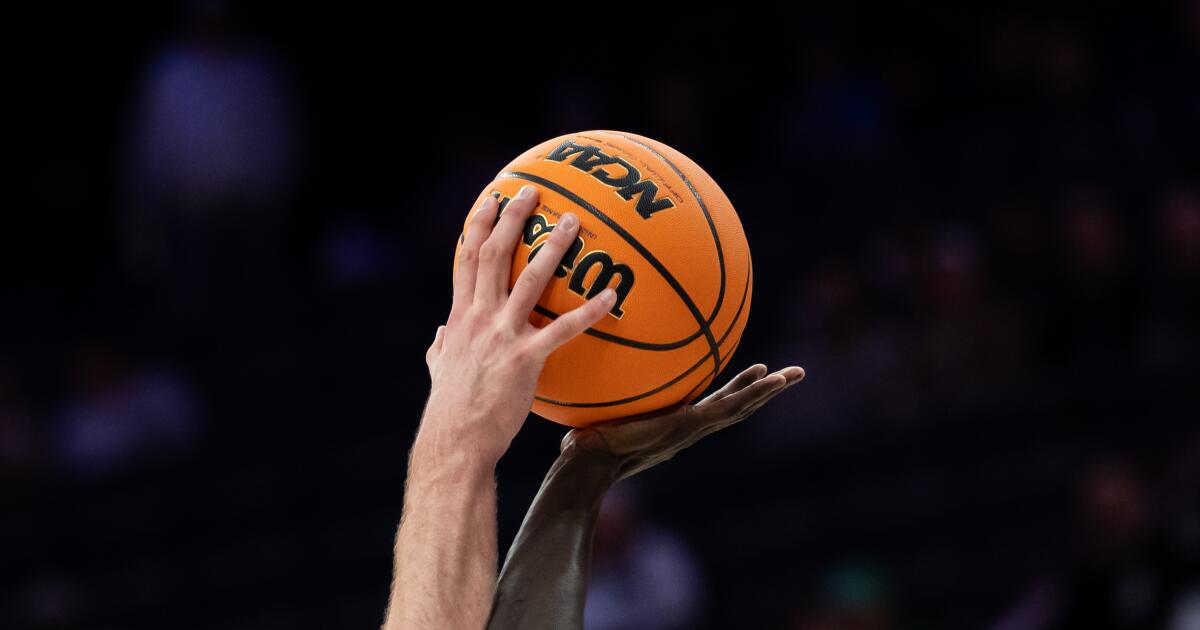Numerous players indicted for fixing basketball games in scandal
At least 20 people allegedly colluded with known gamblers to fix basketball games, according to a federal indictment filed Thursday.
The indictment filed in Philadelphia cites charges of “bribery in sporting contests” and conspiracy to commit wire fraud, to fix men’s college and Chinese professional basketball games.
The U.S. Attorney’s Office for the Eastern District of Pennsylvania announced the sweeping indictment that involves players from 17 college teams from 2022 through 2025. The scheme also involved two gamblers — Shane Hennen and Marves Fairley — who were indicted in October for their alleged role in an NBA sports gambling scheme that included Miami Heat star Terry Rozier.
The most prominent player indicted Thursday was Antonio Blakeney, the leading scorer at Louisiana State in 2016-2017 and a veteran of two seasons with the Chicago Bulls. The shooting guard has played for professional teams in China, Israel and Bahrain since last playing in the NBA in 2019.
According to the indictment, the scheme began with attempts in the 2022–23 season to fix games in the Chinese Basketball Assn. Blakeney, who played for the Jiangsu Dragons and led the league in scoring with 32.1 points a game, is alleged to have been recruited by Hennen and Fairley to shave points.
Hennen and Fairley were included in the indictment along with others who worked as AAU coaches or personal trainers and recruited players to shave points, often in the first halves of games. Prop bets — wagers on specific events or occurrences within a game that aren’t tied to the final score — also were placed on certain outcomes based on the agreements with players. Payments of as much as $20,000 were made to players, the indictment alleges.
“Protecting competition integrity is of the utmost importance for the NCAA. We are thankful for law enforcement agencies working to detect and combat integrity issues and match manipulation in college sports,” NCAA president Charlie Baker said in a statement Thursday. “The pattern of college basketball game integrity conduct revealed by law enforcement today is not entirely new information to the NCAA. Through helpful collaboration and with industry regulators, we have finished or have open investigations into almost all of the teams in today’s indictment.”
Colleges under investigation include DePaul, Saint Louis, La Salle, Eastern Michigan, Robert Morris, Fordham, Buffalo, Tulane, Northwestern (La.) State, Nicholls State, Southern Mississippi, North Carolina A&T, Kennesaw State, Coppin State, New Orleans, Abilene Christian and Alabama State.
The indictment estimates the gamblers conspired with as many as 39 players across those 17 Division I teams to fix games.
“Our enforcement staff has opened sports betting integrity investigations into approximately 40 student-athletes from 20 schools over the past year,” Baker said. “While some of the investigations are ongoing, 11 student-athletes from seven schools were recently found to have bet on their own performances, shared information with known bettors, and/or engaged in game manipulation to collect on bets they—or others—placed. This behavior resulted in a permanent loss of NCAA eligibility for all of them.
“Additionally, 13 student-athletes from eight schools were found to have failed to cooperate in the sports betting integrity investigation by providing false or misleading information, failing to provide relevant documentation and/or refusing to be interviewed by the enforcement staff. None of them are competing today.”
At least four of the players charged are currently active: Simeon Cottle of Kennesaw State, Camian Shell of Delaware State, Carlos Hart of Eastern Michigan and Oumar Koureissi of Texas Southern. Cottle, in fact, scored 21 points Wednesday night in Kennesaw State’s victory over Florida International and is the leading scorer in Conference USA.
Baker said the NCAA tries to root out sports betting violations through a “layered integrity monitoring program” that covers more than 20,000 games, but admits the organization can’t do it alone.
“We still need the remaining states, regulators and gaming companies to eliminate threats to integrity — such as collegiate prop bets — to better protect athletes and leagues from integrity risks and predatory bettors,” he said. “We also will continue to cooperate fully with law enforcement. We urge all student-athletes to make well-informed choices to avoid jeopardizing the game and their eligibility.”
